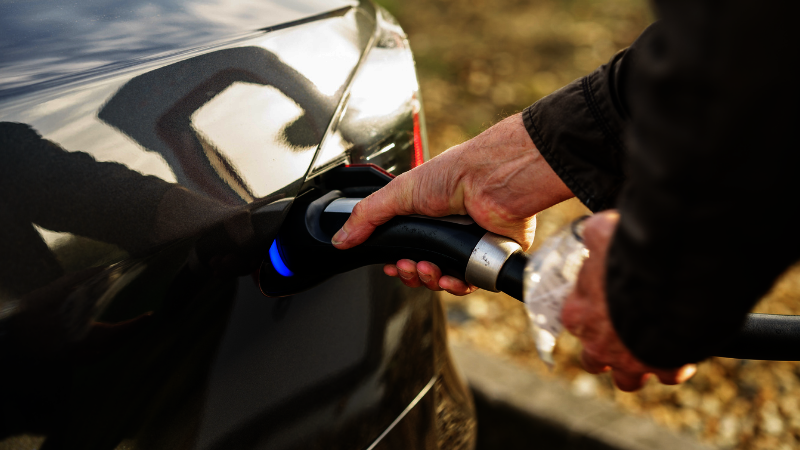How to Charge an Electric Car

So you've splashed out and gone green? You'll probably find driving and charging an electric car is a little different than you are used to with a traditional petrol engine. It can be confusing at the start. Today, we will run you through how to charge an electric car and give you some top tips. Let's dive right in!
How Long Does it Take to Charge an Electric Car?
The real answer?
It depends on several factors… In fact, there are three things you need to consider when thinking about how to charge an electric car:
Battery Size
All batteries are not created equal; some are bigger than others! You'll find your battery size expressed in terms of kilowatt-hours. Sounds technical, right? Well, allow us to make it simple for you. The higher the number of kWh, the bigger the battery and the further it can go on a single charge! MotorEasy electric car warranty covers drive battery protection, get a quote today so you don't have to worry.
Charger Speed
The time it takes to charge your battery will depend on the power output of the charging station. For those owning a Tesla (lucky you), you'll find dedicated high power charging units dotted around the country.
The measure of output is given in Kilowatts. As with the battery capacity, the higher the number, the faster the charger is. The best car chargers can get you fully juiced up in less than half an hour!
Recharge Rate of Your Vehicle
Your electric vehicle will be limited as to how much juice it can accept in one go. As with all lithium-ion batteries, charging them too quickly can be dangerous, so it pays to check your manufacturer's handbook to see the limits.
Charging an Electric Car | 5 Great Tips
Ok, so we are off on a road trip. Here are some of the things that you need to think about when charging an electric vehicle.
Plan your Journey
This is obvious, but unlike with petrol cars, where you can stop pretty much anywhere, you are going to have to plan your route based on how much power you'll need. The good news is that as electric cars become an ever more popular choice, charging points are springing up all over the place.
Timing may also be an issue. Whereas with combustion engines, you can allow the odd five minutes here and there for a quick 'pit stop', charging a battery, even with a high powered charger, can take considerably longer. Your best bet is to try and time your charge with a quick coffee break. If you are a regular traveler, try to think about where you stop most regularly and research charging points in that area.
Consider the Weather
If it is cold out, then you may find that your battery life is reduced. Batteries don't like being cold and don't hold their charge for as long.
If you will be driving long distances in cold weather, it is well worth being conservative in your planning.
Make Sure You Carry a Cable
Many businesses and areas offer free charging and parking…Why? It's a great way to get you to park outside and venture in and spend a few quid. There is a caveat, however… You are going to need to bring your own cable to take advantage. While this might seem costly, think about how nice it will be not to have to put money in a meter. Oh, and make sure it is the right cable. Those used with public stations tend to be 2-pin cables, whereas the one you use at home will be 3-pin.
Little and Often
If you own an electric vehicle, a top tip is to charge it as often as you can. If the opportunity presents itself and the car will be stood for a while, why not give it a little juice while you are busy doing something else?
Charge Fully Before You Go
Ever driven around with the needle on empty in a petrol car? How did it feel? The good news with electric cars is that you never need to do this again. Make it part of your routine that whenever you get home, the first thing that happens is that the car gets plugged in.
Most home chargers work around the 7kW range. This gives you about 30 miles per hour of charge. To put that in simple terms, you'd be able to drive from London to Manchester if you left it for 12 hours overnight in one hop!
Charge on the Go
Often on long trips, you'll find that you will need to stop and 'fill up'. The best bet, especially if you are in a time-critical situation, is to use high power rapid chargers.
These tend to operate in the 40-350kW range. This means that they charge your car between 5 and 50 times quicker than your standard home charge boxes in layman's terms.
You'll tend to find these chargers in large installations like motorway service stations and large shopping complexes.
The benefits of electric vehicles are that they are eco-friendly, and they also save you money in the long run. Because they are new, they can take some getting used to. If you have found that you aren't getting the range you expect, it might be worth getting your battery checked out. If you've got a warranty, this could be even easier. MotorEasy offers extended electric vehicle warranties and can offer expert guidance on car batteries too!
Related reading:
Is 2021 the year I should buy an electric car?







